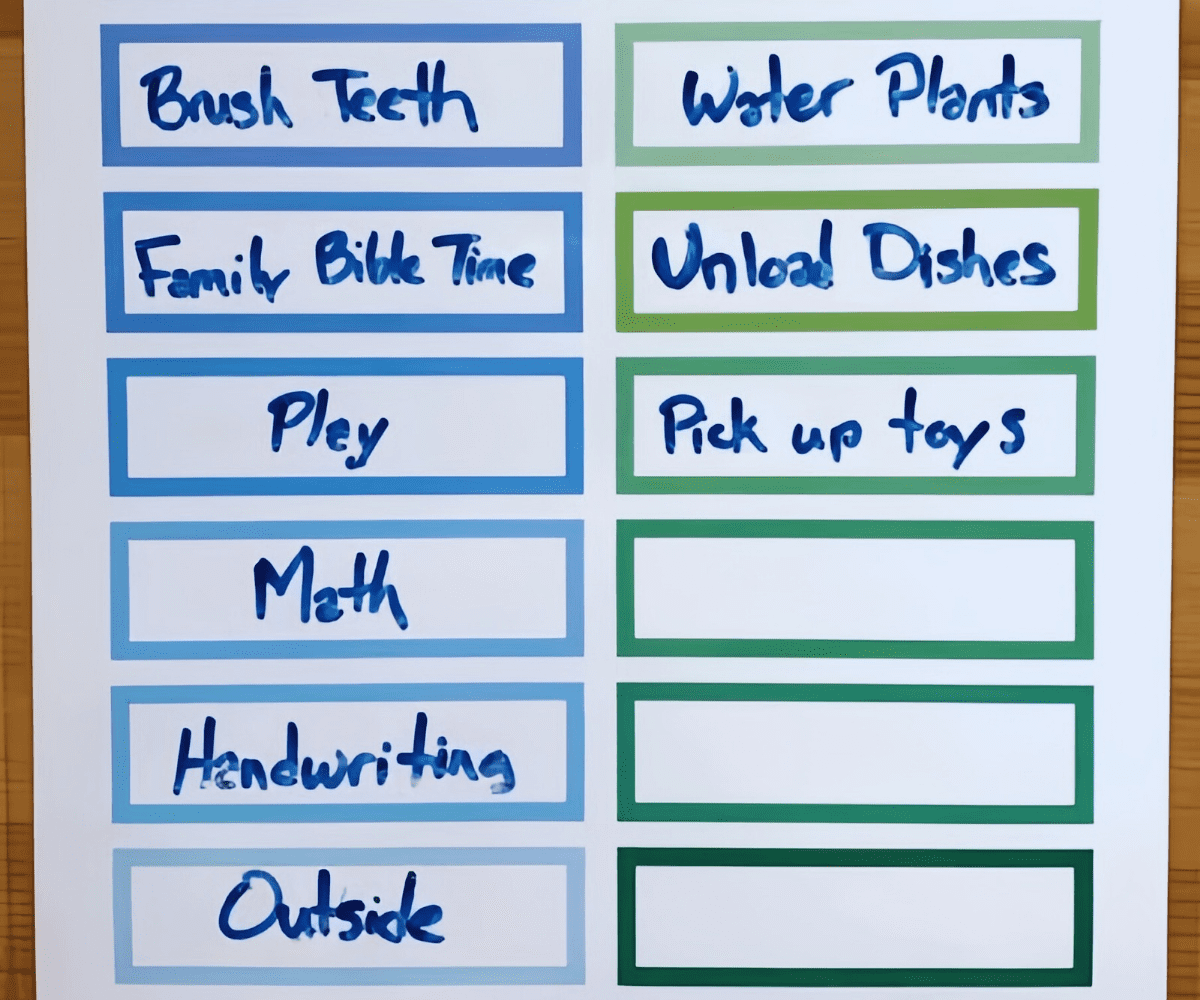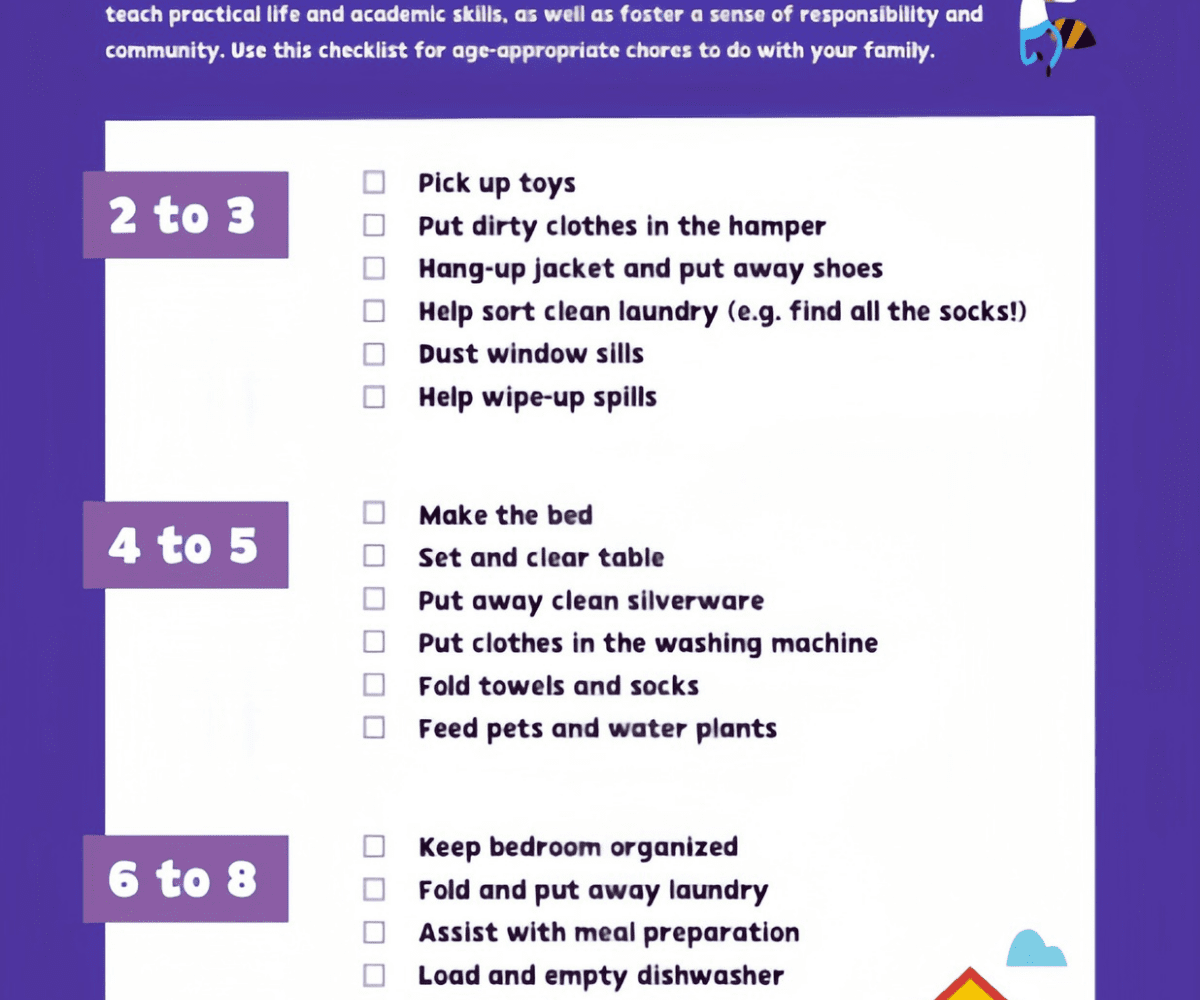Chores for 7 Year Olds: Fostering Responsibility and Life Skills
As kids get older, it’s really important to show them how to be responsible and do things on their own. Giving 7-year-olds tasks they can handle helps them learn important skills, feel good about themselves, and help out at home. With some help and support, these young kids can pick up lessons that will help them a lot as they grow up.

Why Chores are Important for 7 Year Olds
Doing chores isn’t just about cleaning up around the house. It’s a chance for kids to learn and grow. When parents start giving chores early on, they help kids learn to be responsible, manage their time well, and develop a good attitude towards work. Here are some key benefits of assigning chores to 7-year-olds:
- Responsibility: Chores teach children to be accountable for their actions and to follow through on tasks assigned to them. This sense of responsibility can translate into other areas of their lives, such as school work and future careers.
- Independence: As children learn to complete chores on their own, they develop a sense of independence and self-reliance. This boosts their confidence and prepares them for future challenges.
- Life Skills: Chores help children acquire practical skills that will serve them well throughout their lives. From cleaning and organizing to basic household maintenance, these skills are invaluable.
- Teamwork: When chores are shared among family members, children learn the value of teamwork and cooperation. They understand that everyone contributes to the household’s well-being.
- Appreciation: By participating in household tasks, children gain a deeper appreciation for the efforts required to maintain a home. This can foster gratitude and respect for the work of others.
Age-Appropriate Chores for 7 Year Olds
At the age of 7, children are capable of handling a variety of simple chores around the house. It’s important to start with tasks that are manageable and age-appropriate to help them build confidence and a sense of accomplishment. Here are some suitable chores for 7-year-olds:
Bedroom Chores
– Making the Bed: Teach your child how to smooth out the sheets and blankets, fluff up the pillows, and make their bed look neat and tidy.
– Picking Up Toys and Clothes: Encourage your child to keep their room organized by putting away toys and clothes when they’re done playing or changing.
– Dusting: Provide your child with a microfiber duster and show them how to gently remove dust from surfaces like dressers, shelves, and windowsills.
Bathroom Chores
– Cleaning the Sink: With a kid-friendly cleaning solution and a rag, your child can learn to wipe down the sink and keep it looking clean.
– Putting Away Toiletries: Teach your child to put away their toothbrush, hairbrush, and other personal items after using them.
– Hanging Towels: Show your child how to hang up wet towels to dry after a bath or shower.
Kitchen Chores
– Setting the Table: Assign your child the task of setting the table for meals, placing plates, utensils, and napkins in the correct spots.
– Clearing the Table: After meals, have your child clear their plate and utensils from the table and place them in the designated area.
– Wiping Down Surfaces: With a damp cloth, your child can help wipe down kitchen counters and tables, learning the importance of cleanliness.
Living Room Chores
– Putting Away Toys and Games: Encourage your child to put away toys, puzzles, and games after playing to keep the living room tidy.
– Straightening Pillows and Blankets: If your child likes to lounge on the couch or chairs, teach them to straighten pillows and blankets when they’re done.
– Dusting: Similar to the bedroom, your child can use a microfiber duster to gently remove dust from surfaces in the living room.
Outdoor Chores
– Watering Plants: Provide your child with a small watering can and assign them the task of watering potted plants or a small garden area.
– Picking Up Yard Debris: Teach your child to collect fallen leaves, twigs, or other debris in the yard and dispose of them properly.
– Sweeping the Porch or Patio: With a child-sized broom, your child can help keep the porch or patio area clean by sweeping away dirt and debris.
Tips for Introducing Chores to 7 Year Olds
While assigning chores is essential for your child’s development, it’s important to approach the process in a positive and encouraging manner. Here are some tips to help make the experience enjoyable and rewarding:
- Start Small: Begin with simple, manageable chores and gradually increase the complexity as your child becomes more confident and capable.
- Explain the Importance: Explain to your child why chores are important and how they contribute to the household. Help them understand that everyone has a role to play.
- Use Positive Reinforcement: Praise your child when they complete their chores successfully. Positive reinforcement can go a long way in motivating them to continue their efforts.
- Make it Fun: Incorporate games, songs, or rewards to make chore time more enjoyable. You can also involve your child in creating a chore chart or schedule.
- Lead by Example: Children learn best by observing their parents. Make sure you’re setting a good example by completing your own household tasks and demonstrating a positive attitude toward chores.
- Be Patient and Consistent: Rome wasn’t built in a day, and your child may need time to develop the habits and skills necessary for completing chores consistently. Be patient and keep encouraging them along the way.

Conclusion
Giving simple tasks to 7-year-olds helps them grow and learn. When you give them chores, you teach them important skills and how to be responsible. Start with easy tasks, help them when needed, and make it enjoyable. With your help, they’ll learn things that will be useful for their whole life.
FAQs
Q1: How much time should a 7-year-old spend on chores each day?
A: It’s generally recommended that 7-year-olds spend around 15-30 minutes per day on chores. However, this can vary depending on the child’s ability and the specific tasks assigned. It’s important to start with shorter durations and gradually increase as they become more proficient.
Q2: Should I pay my 7-year-old for doing chores?
A: While it’s a personal decision, many experts recommend against paying for routine chores at this age. Chores should be presented as a natural part of contributing to the household, rather than a job for payment. However, you can consider offering small rewards or privileges for exceptional effort or completion of extra tasks.
Q3: What if my 7-year-old refuses to do their chores?
A: It’s common for children to resist chores initially. Remain patient and consistent, and try to make the experience more enjoyable by incorporating games, music, or rewards. If the resistance persists, consider implementing age-appropriate consequences, such as losing privileges or screen time. However, avoid punishment or scolding, as this can create negative associations with chores.
Q4: Can chores be shared among siblings?
A: Absolutely! Assigning chores to all children in the household can promote teamwork and cooperation. Consider creating a rotating schedule or dividing tasks based on each child’s abilities and interests. This not only helps distribute the workload but also teaches valuable lessons about sharing responsibilities.
Q5: How can I ensure my child’s safety while doing chores?
A: Safety should always be a top priority when assigning chores to children. Provide proper supervision, especially for tasks involving sharp objects or chemicals. Teach your child about potential hazards and safety protocols. Additionally, ensure that any tools or equipment they use are age-appropriate and well-maintained.
For more, Click here
